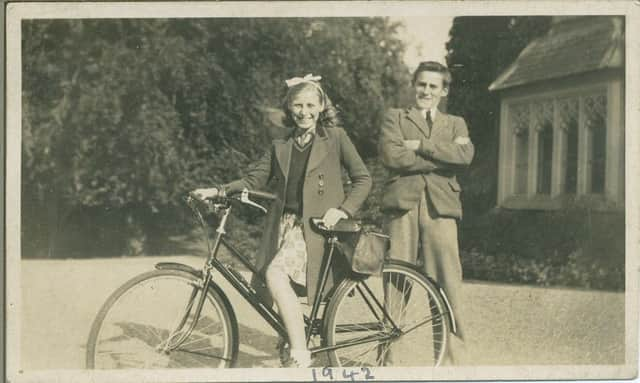The '˜splendid war' of a South Shields lad who was evacuated twice


Today we tell the story of one of them, South Shields-born John James Castling (who was known as Jack), a double evacuee, who died just a few months ago at the age of 89, and who describes his experience at the time as – his “splendid war”.
Jack was born in South Shields in 1927. When Britain declared war on Germany in September 1939, he was a 12 year old boy attending Dame Allan’s Schools.
Advertisement
Hide AdAdvertisement
Hide AdDame Allan’s Schools’ principal, Dr John Hird, takes up the tale, saying: “What was to follow over the coming years for the young Jack proved his ceaseless positivity and his ability to make the best of any situation.”
By the time of his evacuation, Jack and his family, including his sister Sheila, who also attended Dame Allan’s, had moved from Shields to Newcastle.
“He was first evacuated to Wigton, Cumbria, in 1939.
“After eight months later the threat to the North East appeared to have receded and so Jack returned home.
“However, Newcastle was a key target during the war, and in July 1940, a German raider attempted to drop a bomb on the high-level bridge between the city and Gateshead.
Advertisement
Hide AdAdvertisement
Hide Ad“Although it missed, it struck nearby Spiller’s Mill, resulting in the death of 13 people and injuring 100 more.
At the time, Dame Allan’s Schools was holding an evensong service at St Nicholas’ Cathedral, in the city centre.
The bomb caused the cathedral and the surrounding vicinity to shake so violently that soon afterwards three-quarters of Dame Allan’s parents decided to evacuate their children to the safer countryside.
As a result, on July 7, just five days after the bombing, 12-year-old Jack and 150 other lads from Dame Allan’s Boys’ School, carrying just a few possessions and a gas mask, departed from Heaton station, and took the train to Windermere. Jack’s sister followed the day after with the girls’ school.
Advertisement
Hide AdAdvertisement
Hide Ad“Jack would spend the next four years of his life living in Windermere, where he attended Windermere Grammar School, and lived with three host families, eventually being re-united with his sister and mother, who was given a job in Windermere, in his final host’s house.
“Jack would later reflect on these years with happiness, saying that he had had ‘a splendid war’.
“It was such a big adventure,” he reported. “We were townies and had not seen sheep in fields. We would go around Windermere with big walking sticks.’
“However, it wasn’t an easy life,” said Dr Hird.
Speaking of his time in his final host house Jack said: “There was no central heating, and once we put a glass of water between the beds, and in the morning it was frozen solid.”
Advertisement
Hide AdAdvertisement
Hide AdThere were tragedies too – the head teacher of Windermere Grammar School, Mr Knowles, was called up to go to war, and was later reported missing. It was eventually discovered that he died in captivity in the Far East.
In 1944 Jack returned to the North East and eventually worked as a research executive for Proctor & Gamble in Newcastle, where he met his wife Ann.
Despite the passing years, Jack continued his affiliation with Dame Allan’s, and in 2005 attended its tercentenary event, when he met the Queen.
Jack died in October, last year, prompting Dr Hird to say: “Jack’s story really is remarkable. For a child to have to live away from home twice under such circumstances must have been frightening. However Jack was a very positive person. He will be missed very much by us all at Dame Allan’s.”
Did you have to be evacuated?